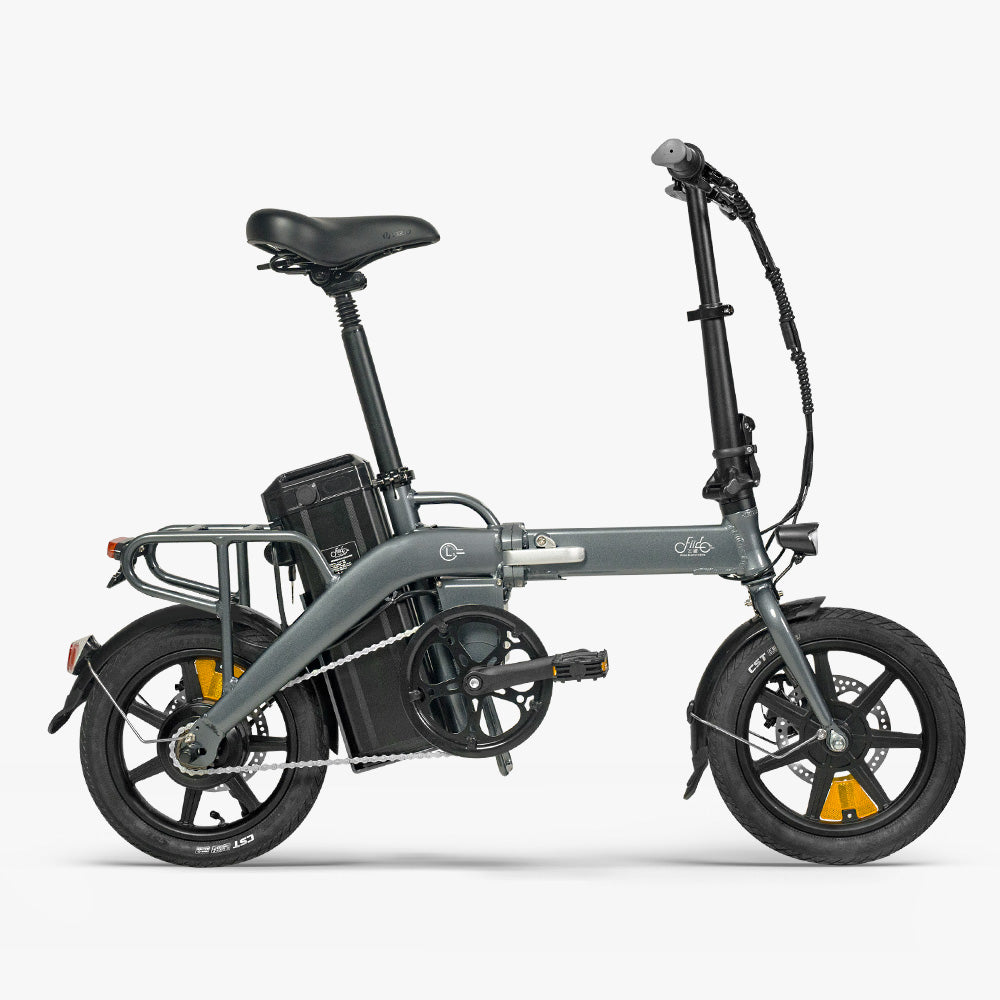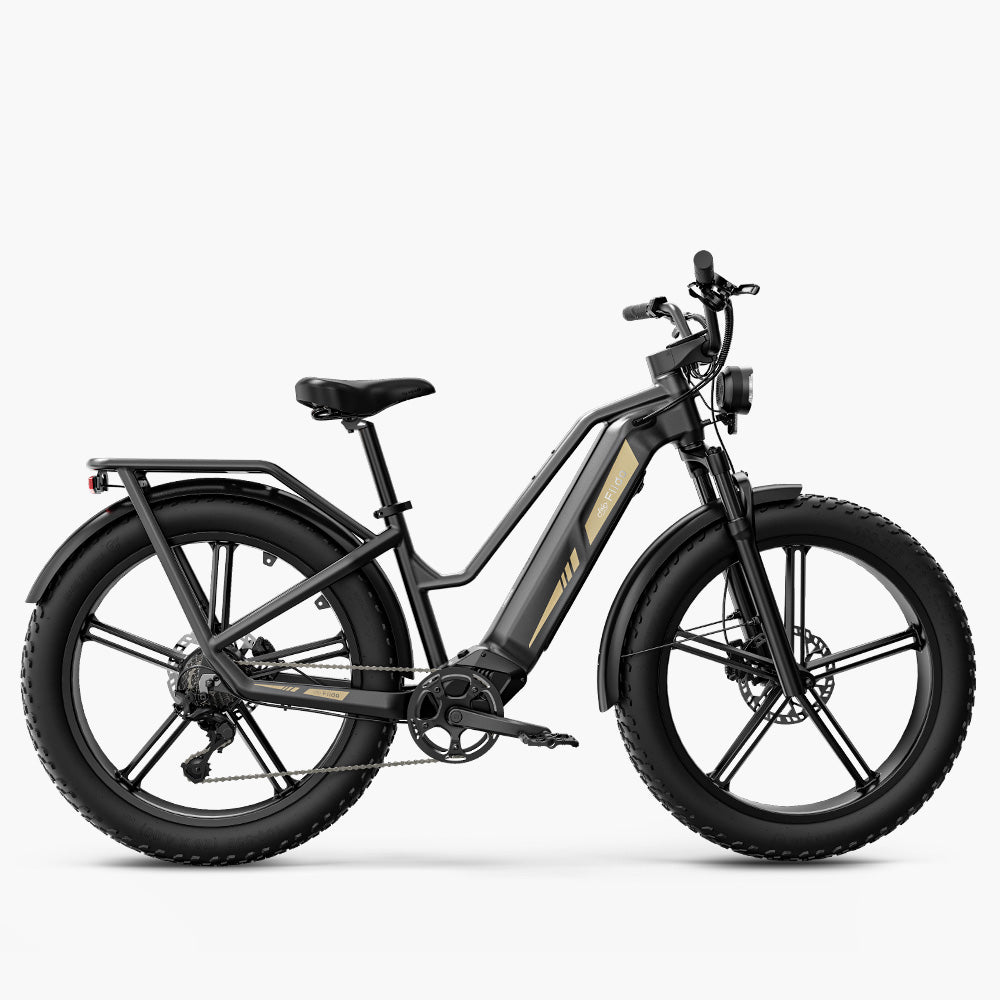Electric bikes are transforming urban mobility, offering a seamless blend of pedal power and motor assist. They cut through traffic, reduce costs, and make commuting effortless—whether for city rides, weekend adventures, or longer journeys.But how much energy do they really use? Understanding an e-bike’s consumption per kilometer can help you make smarter choices for efficiency and cost savings.

Energy Consumption of Electric Bicycles
The energy consumption of an electric bike typically ranges from 0.5 to 2 Wh per kilometer, depending on various factors. Understanding this figure is crucial, as it directly affects both the economic efficiency and sustainability of using an e-bike. Below are some examples of how energy consumption influences user experience:
- Low energy consumption (8-10 Wh/km): Allows for longer distances on a single charge, ideal for urban commuting where frequent charging is not required.
- High energy consumption (15-20 Wh/km): Reduces the distance that can be covered on a single charge, requiring more frequent recharging, thereby increasing costs and reducing user convenience.
Factors Influencing Energy Consumption
Motor Power: Higher motor power results in greater energy consumption. However, optimized high-power motors designed for long routes or inclined terrains may be more efficient on flat surfaces.
Route Conditions: Terrain type, wind speed, and temperature affect consumption. For example, steep inclines or strong headwinds require more power, increasing energy use.
Riding Habits: Frequent acceleration, constant braking, and speed variations impact energy expenditure. Maintaining a steady speed and avoiding sudden accelerations helps optimize consumption.
Battery Life and Charging Costs
To estimate the charging cost, it is necessary to know the consumption per kilometer.
The Fiido L3 electric bicycle consumes approximately 11 Wh per kilometer. With Ireland's average electricity cost of about €0.2236 per kWh, this translates to approximately €0.00246 per kilometer. For an average user traveling 100 kilometers per month, the monthly cost would be around €0.246, making electric bicycles a highly economical transportation option compared to cars or public transportation.
The battery life of an electric bicycle depends on both its capacity and energy consumption.You can get more detailed information by looking at how long the battery life is.
Tips to Optimize Energy Consumption
Reducing the energy consumption of an electric bicycle not only helps save money but also improves battery efficiency in the long run. Here are some useful tips:
Choose the right riding mode: Use “eco mode” or the energy-saving mode whenever possible, as these settings reduce energy consumption without significantly affecting speed or performance.
Keep tires properly inflated: The correct tire pressure reduces rolling resistance, helping conserve battery power and improve range.
Plan your routes: Avoiding steep inclines or congested routes minimizes frequent braking and acceleration, thereby reducing energy consumption.
Use pedal-assist: Utilizing pedal-assist mode can significantly reduce motor energy consumption, allowing longer distances to be traveled on a single charge.
Comparison with Other Means of Transportation
The energy consumption of an electric bicycle is significantly lower than that of other motorized transportation modes. For instance:
- An electric car consumes approximately 15-20 kWh per 100 kilometers, whereas an electric bicycle consumes only 0.5 to 2 Wh per kilometer.
- This difference makes electric bicycles a more sustainable and cost-effective alternative for short- and medium-distance trips, such as commuting to work or running daily errands.
Additionally, maintaining an electric bicycle is much simpler and cheaper compared to a car or a motorcycle, as it does not require fuel or complex mechanical checkups. E-bike users also benefit from avoiding traffic congestion, allowing them to save time and enjoy a more relaxed riding experience.

Recommended Fiido Electric Bicycles
For daily commuting, choosing the right electric city bike is essential. Fiido offers models that combine high performance with low energy consumption, making them perfect for urban transport and challenging routes. Below are two recommended Fiido electric bikes to enhance your commuting experience:
- Fiido L3: This Fiido L3 Electric Bicycle is perfect for daily urban use thanks to its lightweight design and low energy consumption. It is ideal for those looking for an economical option without compromising performance.
Fiido L3 Long Range Electric Bike
Longest Range Folding Electric Bike under €1000
- Fiido Titan: The Titan Fat Tire Touring Ebike is a high-performance all-terrain model. Although it consumes more energy than urban models, it offers excellent stability and durability, making it ideal for adventurous users tackling more demanding terrains.
Fiido Titan Robust Cargo Electric Bike
A powerhouse with a 400 km range and 4-piston brakes, ideal for hunting and fishing trips.
Conclusion
Understanding the energy consumption of electric bicycles is essential to optimizing their use and making informed purchasing decisions. Considering factors such as motor power, route conditions, and riding habits allows users to maximize the economic and environmental benefits of this mode of transportation.
Moreover, with the right strategies to reduce energy consumption, users can extend their bike’s range and minimize charging costs, making electric bicycles an even more attractive and efficient mobility solution.















